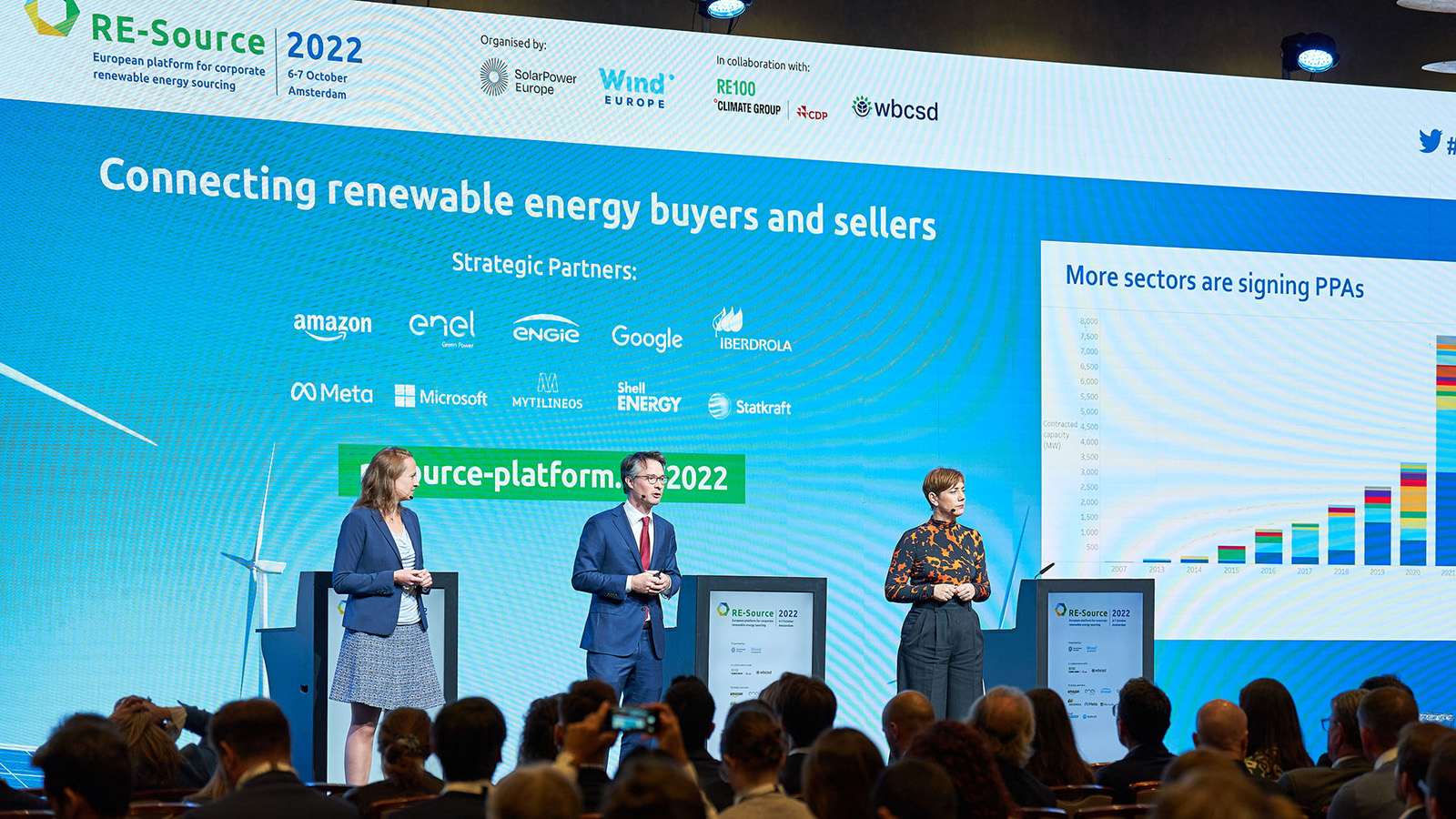News
Industry wants to buy renewable energy – but emergency measures threaten PPA market

© Tim Buelens
6 October 2022
In the midst of Europe’s energy crisis, caused by the Russian invasion of Ukraine and its subsequent cuts of gas exports to Europe, the RE-Source 2022 event started today. Organised by the RE-Source Platform, Europe’s largest corporate renewable electricity sourcing event will gather 1,000 key players in Amsterdam to exchange on renewable Power Purchase Agreements (PPAs).
Driven by the high price of gas, electricity prices have increased up to 10-fold over the last year, putting European families and businesses under increasing pressure. Europe now needs home-grown renewable electricity more than ever to ensure affordable electricity, security of supply and the competitiveness of its economy.
In pursuit of energy price stability, reliable electricity supply, and carbon emission reduction, European companies continue to trust in renewables: 3.4 GW of corporate renewable PPAs were signed in the first three quarters of 2022. That’s similar to 2020, the second best year on record for PPA deals in Europe, but less than 2021. It means that the European PPA market is in decline for the first time in five years.
The RE-Source 2022 event confirms the growing appetite for corporate renewable PPAs: a record number of corporate buyers are registered for this year’s edition, with over 100 buyers participating in RE-Source for the first time.
Emergency measures risk threatening Europe’s PPA market
RE-Source 2022 takes place one week after EU Energy Ministers agreed emergency market interventions to tackle rising energy prices. The RE-Source Platform warns that a patchwork of national measures could chill the European PPA market, at a time when PPAs are more critical than ever for the market-driven renewable energy transition. European companies are eager to sign new PPAs. National market interventions must not undermine the necessary scale-up of the PPA market.
Especially the revenue cap on inframarginal technologies will have negative effects on existing and future PPAs, if not implemented properly. The EU has adopted a €180/MWh electricity revenue cap for inframarginal producers of electricity, such as wind and solar.
The recent agreement from Energy Ministers allows Member States to deviate from the uniform €180MWh revenue cap for all inframarginal technologies, to maintain national caps, or to introduce uncoordinated additional measures. No company or investor will want to sign a long-term energy contract if they don’t get the regulatory certainty they need.
Member States must clarify the implementation of the revenue cap and its application on PPAs as soon as possible to fully leverage the benefits of corporate sourcing and to unlock urgently needed renewable investments.
Joop Hazenberg, Impact Director at the RE-Source Platform, said: “Last week’s decision from Energy Ministers is an unfortunate step in the wrong direction. The potential of uncoordinated national revenue caps applying to PPAs risks chilling the market, at a time when businesses need to secure stable energy prices more than ever. We call on EU Member States to stick to the EU-wide cap, which is temporary and applies equally to all forms of inframarginal electricity production.”

